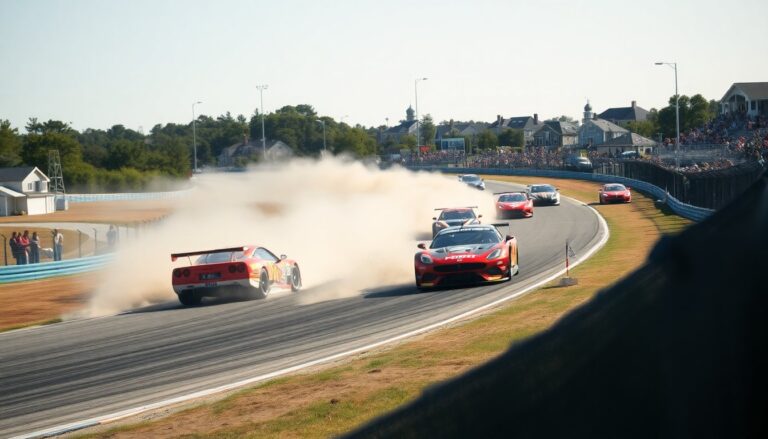Argomenti trattati
In a significant development for motorsport enthusiasts, North Carolina has enacted a law aimed at protecting its cherished racing tracks. This legislation, known as House Bill 926, addresses concerns regarding residential and commercial developments that threaten established racing facilities. The bill responds directly to increasing noise complaints from new residents near these venues.
Understanding the implications of House Bill 926
The recently passed law not only seeks to safeguard the sport but also acknowledges the cultural importance of racing in North Carolina. The provision, referred to as the ‘right to race’, emphasizes the essential role these tracks play in the state’s heritage. By implementing legal protections, the state aims to mitigate potential conflicts stemming from noise complaints from neighboring residents.
Overview of the Racing Protection Act
The Racing Protection Act establishes measures designed to safeguard the operational rights of racing venues. This legislation aims to prevent mixed-use developments that could jeopardize the viability of tracks that have hosted races for many years. Importantly, the law prohibits the use of noise ordinances against racing facilities, thereby protecting them from legal actions that might threaten their continued existence.
The cultural impact of racing in North Carolina
North Carolina is a key player in the realm of stock car racing, boasting a rich history that began in the early 20th century. The state features several tracks that are now iconic within the sport, drawing fans and competitors from various regions. This recognition not only provides legal protection but also highlights the significant economic and social roles these racing venues play in their local communities.
Community support for racing venues
Support for House Bill 926 has gained significant traction among racing enthusiasts and local businesses. Many advocate for this legislation as a vital measure to secure the future of a sport that contributes to job creation, tourism, and local pride. By restricting the encroachment of new developments, the law creates an environment where racing can flourish, free from the ongoing threat of legal disputes. This stability is crucial as the motorsport industry continues to evolve and attract new fans.
The future of racing in North Carolina
The recent enactment of this law establishes a significant precedent regarding the legal treatment of racing facilities. It offers a framework that other states grappling with NIMBYism—the resistance from local residents against developments perceived as disruptive—might adopt. North Carolina’s proactive stance could inspire similar protective measures for racing venues across the nation.
Call for awareness and support
As North Carolina advances with this legislation, it is vital for fans and policymakers to remain engaged in advocating for the racing community. Active participation with local representatives and promoting the preservation of racing culture can help ensure that these venues are celebrated rather than contested. The new law reflects the state’s dedication to safeguarding its racing heritage, but ongoing community support will be essential for its effectiveness.
House Bill 926 signifies a notable achievement for racing advocates in North Carolina. It not only recognizes the significance of racing tracks but also strengthens their defense against disruptive developments. This law positions North Carolina to continue as a hub for motorsport, preserving its rich history while laying the groundwork for a promising future.

